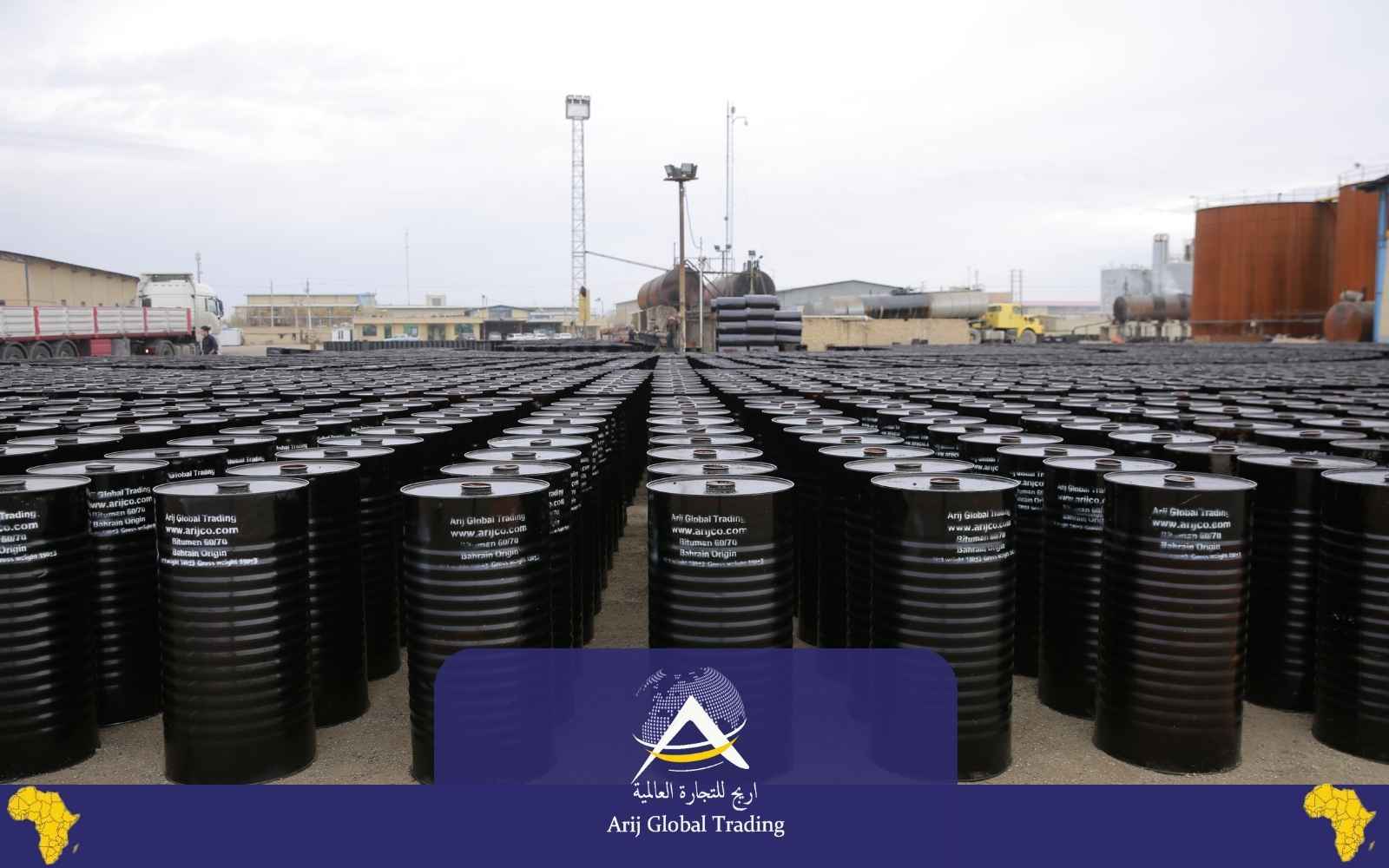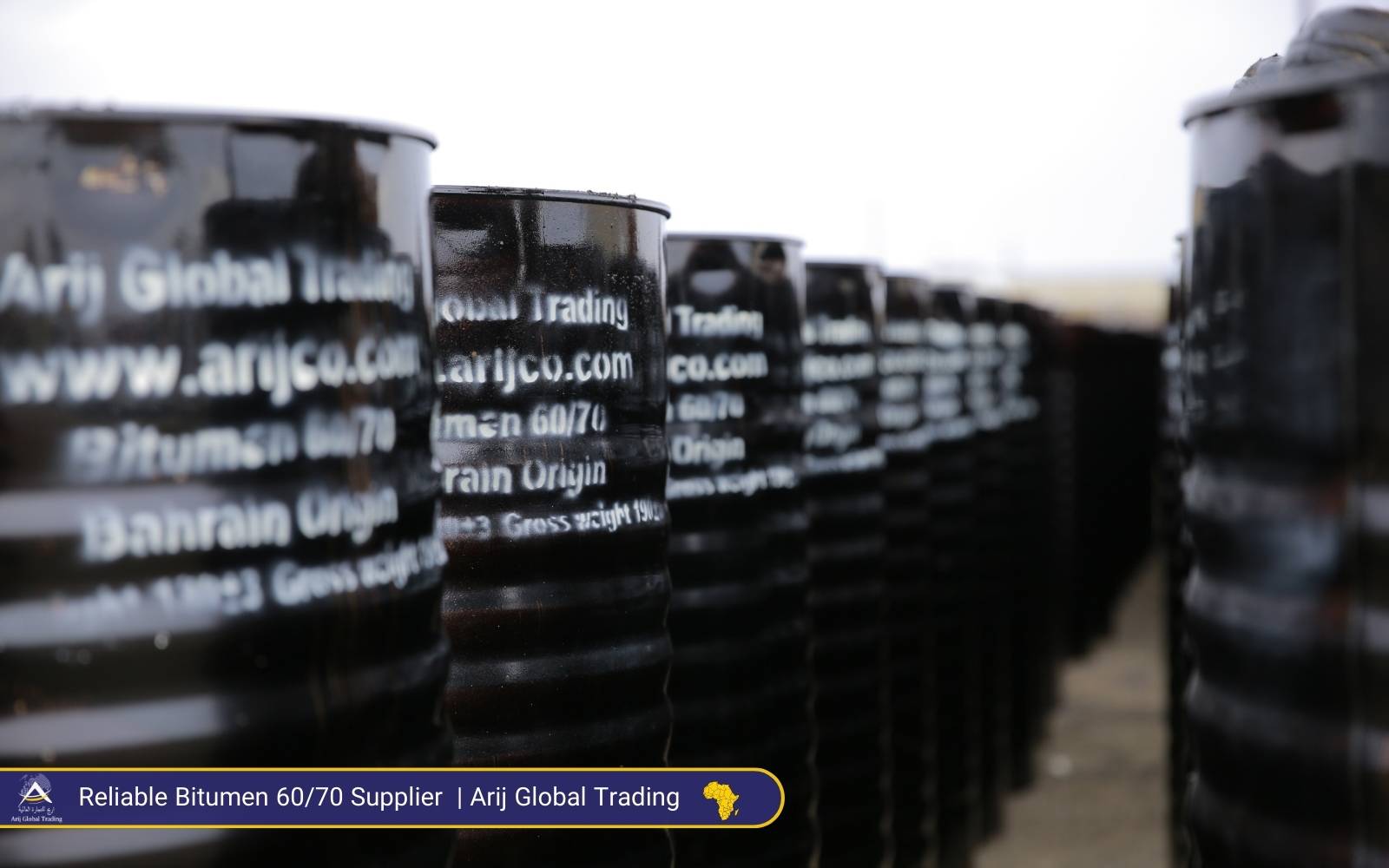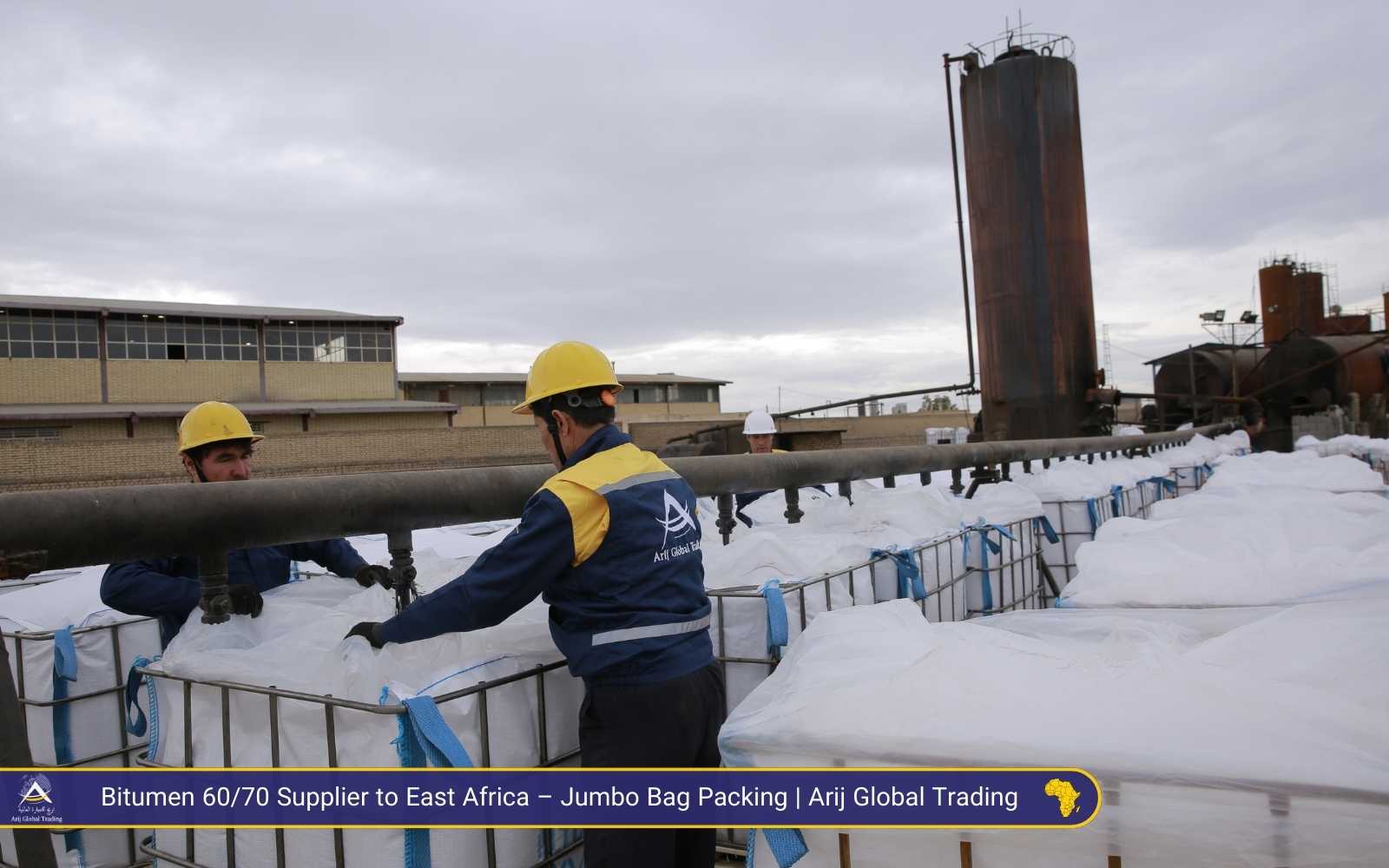
Introduction
East Africa is undergoing one of the fastest infrastructure growth phases in the world, with nations such as Kenya, Tanzania, Uganda, and Ethiopia investing heavily in highways, airports, and urban development. At the heart of these projects lies a crucial material: Bitumen 60/70 Supplier to East Africa, the penetration-grade bitumen widely recognized for its durability and adaptability to tropical climates. As an experienced Bitumen 60/70 Supplier, Arij Global Trading understands not only the technical specifications of this vital material but also the logistical and strategic requirements of delivering it reliably in bulk packaging to demanding projects across the region.
Arij Global Trading, with decades of expertise as a global bitumen supplier, bitumen trader, and bitumen exporter, has built a reputation on reliability, efficiency, and the ability to meet diverse project needs. Whether it’s a government-led road expansion in Nairobi or a private contractor’s port development in Dar es Salaam, we are committed to ensuring timely, cost-effective, and quality-assured delivery of Bitumen 60/70.
Why Bitumen 60/70 is the Preferred Grade in East Africa
Technical Benefits of Bitumen 60/70
Bitumen 60/70 Supplier is categorized as penetration-grade bitumen, defined by its consistency and hardness. The “60/70” penetration value indicates that this grade has an optimal balance between softness and hardness, making it resistant to deformation while maintaining flexibility. This is especially crucial for East Africa, where road surfaces are exposed to both scorching sun and heavy seasonal rains.
- Durability: Roads constructed with Bitumen 60/70 last longer under heavy traffic loads.
- Climate adaptability: Suitable for hot and humid climates, resisting cracks and softening.
- Standard compliance: Meets international ASTM standard, ensuring global recognition.
Infrastructure Growth and Rising Demand in East Africa
The demand for Bitumen 60/70 Supplier to East Africa services is directly linked to rapid infrastructure growth. Governments are investing billions into road networks that connect ports to inland cities, facilitate cross-border trade, and support urban expansion.
- Kenya: Road projects such as the Nairobi Expressway and Mombasa Highway expansion have increased the demand for bulk bitumen.
- Tanzania: The Dar es Salaam–Dodoma highway required large-scale bulk shipments of bitumen.
- Uganda & Rwanda: Cross-country roads linking to trade corridors are driving consistent demand.
These projects not only create economic opportunities but also demonstrate the region’s reliance on a trusted bitumen producer like Arij Global Trading, capable of supplying bulk volumes efficiently.

Our Expertise as a Trusted Bitumen 60/70 Supplier
As an established Bitumen 60/70 Supplier, Arij Global Trading prides itself on an integrated supply chain that bridges refinery production with on-the-ground project delivery. Our services are designed to meet the specific challenges of East Africa, including port handling, inland logistics, and bulk storage solutions.
- Global Reach: Active trading in Africa, Asia, and Europe.
- Proven Track Record: Years of successful deliveries to East African clients.
- Quality Assurance: Every shipment is tested for compliance with international standards.
Bulk Packaging Options Tailored to East African Needs
One of the key aspects that sets Arij Global Trading apart as a bitumen trader and bitumen exporter is our flexibility in packaging and delivery. We understand that large infrastructure projects demand efficient bulk handling, and we offer:
- Bulk tankers: Ideal for mega-projects, minimizing unloading time.
- New steel drums: Widely used and suitable for projects with moderate storage capacity.
- Jumbo bags: A modern, efficient solution that reduces waste and simplifies handling.
- Custom packaging: Tailored solutions depending on client storage and project requirements.
Bulk packaging is not just about quantity; it’s about reducing costs, improving delivery efficiency, and ensuring smooth project execution. Many East African contractors have chosen bulk tanker deliveries to streamline their operations, a method we have successfully facilitated at multiple ports including Mombasa and Dar es Salaam.

Logistics and Shipping Capabilities
Being a reliable bitumen supplier requires more than just quality material—it demands a mastery of logistics. Arij Global Trading’s strong shipping networks and regional expertise allow us to deliver seamlessly:
- Strategic Ports: Mombasa (Kenya), Dar es Salaam (Tanzania), Djibouti, and Port Sudan.
- Inland Distribution: Coordinated trucking networks to Uganda, Rwanda, Ethiopia, and beyond.
- Efficient Customs Handling: Years of experience with port authorities and customs offices.
- On-Time Delivery: Track record of meeting even the strictest project deadlines.
By combining bulk shipping with inland distribution, we ensure that even landlocked nations like Rwanda and Uganda receive timely bitumen supplies, avoiding costly delays.
Competitive Advantages of Choosing Us
Clients across East Africa choose Arij Global Trading as their preferred bitumen producer because of:
- Direct refinery sourcing: Guaranteed quality and stable supply.
- Competitive bitumen price: Flexible pricing models for bulk orders.
- Technical Support: Advisory services on bitumen grades and applications.
- Sustainability Commitment: Environmentally conscious supply chain practices.
Our long-standing partnerships with regional contractors are a testament to our dedication to long-term value rather than short-term gains.
The Future of Bitumen Supply in East Africa
The outlook for East Africa’s bitumen market is promising, with upcoming projects in Kenya’s LAPSSET corridor, Ethiopia’s urban road expansions, and Rwanda’s infrastructure modernization plans. Each of these initiatives points to an ever-increasing demand for bulk bitumen supplies.
As a trusted Bitumen 60/70 Supplier to East Africa, Arij Global Trading’s vision is to expand our supply capacity, strengthen partnerships with regional contractors, and continue playing a key role in Africa’s infrastructure transformation.